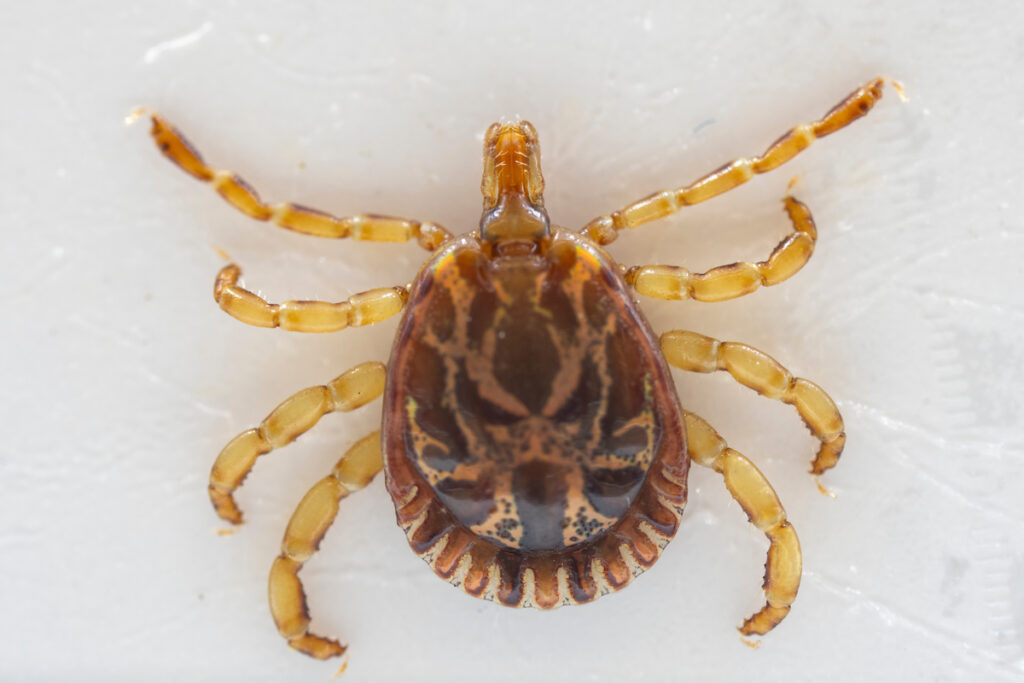Urban tick workshop set for April 16-17 in Dallas
Event focuses on prevention and management

The Texas A&M AgriLife Extension Service will host an urban tick workshop April 16-17 in Dallas.
The workshop will be held from 12:30-5:45 p.m. on April 16 and 8 a.m.-5 p.m. on April 17 at the Texas A&M AgriLife Research and Extension Center at Dallas, 17360 Coit Road. The cost to register is $50, and registration can be done by visiting https://tx.ag/UrbanTickWorkshop.
A lunch will be provided on the second day of the workshop. There also will be three Texas Department of Agriculture continuing education units available for pesticide applicator license holders.
Workshop agenda
The course consists of both lecture and hands-on activities. Participants will learn more about the most common ticks found in Texas; their biology, prevention and management; and the most common tick-borne diseases.
Topics will include:
- Introduction to tick biology — Samantha Hays, Ph.D., postdoctoral research associate, Texas A&M Department of Entomology, Bryan-College Station.
- Tick identification: Amblyomma, Dermacentor — Hays.
- Tick identification: Rhipicephalus, Boophilus, Ixodes — Hays.
- Tick surveillance techniques — Sonja Swiger, Ph.D., AgriLife Extension entomologist and professor in the Department of Entomology, Stephenville, and Hays.
- Tickborne diseases of Texas — Bonny Mayes, epidemiologist, Texas Department of State Health Services Zoonosis Control Branch, Austin.
- Texas Department of State Health Services tick testing program — Mayes.
- Tick and wildlife ecology — Tammi Johnson, Ph.D., assistant professor, Department of Rangeland, Wildlife and Fisheries Management, Uvalde.
- Southwestern ticks — Johnson.
- Soft ticks of Texas — Job Lopez, Ph.D., associate professor, pediatrics-tropical medicine, Baylor College of Medicine, Houston.
- Integrated tick management — Hays
- The Asian longhorned tick: What is it and why should I care? — Swiger.
For more information, contact Susan Keith at 254-974-9446 or [email protected].





